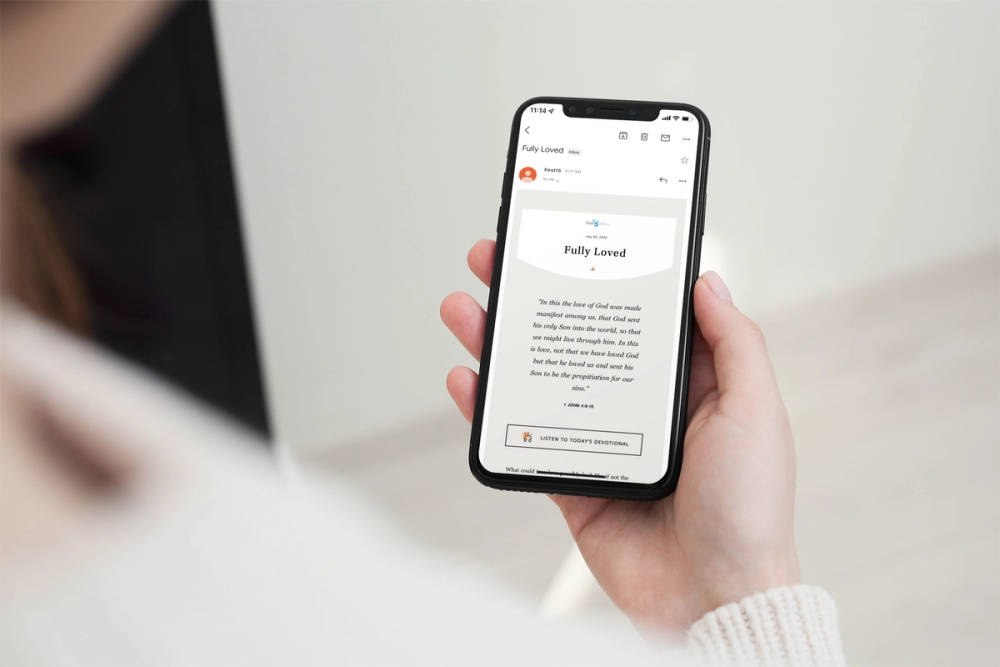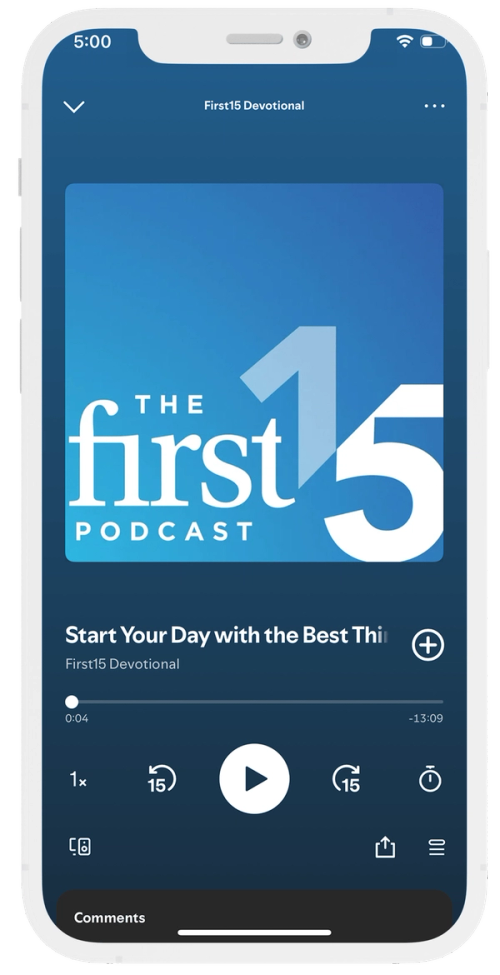When you can’t trace his hand, trust his heart
God promises us that we can trust his heart even when we can’t see his hand.
God promises us that we can trust his heart even when we can’t see his hand.
“I know the plans I have for you, declares the
Lord, plans for welfare and not for evil, to give you a future and a hope.”
Jeremiah 29:11 ESV
Today we’re going to explore what it means to truly trust God. Life is full of incredibly difficult circumstances, and in the midst of disappointments and pain it can be hard to trust that he is good and loving. But thankfully, God promises us that we can trust his heart even when we can’t see his hand. Let’s look at what it means to trust God in the midst of our circumstances today.
As we focus this week on practical ways to begin our year with God, let’s pause today to ask an honest question: Why should we want to trust our year and our lives to him?
My father fought in World War II and experienced such atrocities that he never attended church again. And over many years of my own ministry, I have met many people like my dad. Their questioning is only natural since Christians believe in an all-knowing, all-loving, and all-powerful God. Because of that, he knows all about our problems, he loves us enough to help us with them, and he is powerful enough to do so.
And yet you and I live in a fallen, broken world.
If you’re like me, God has not answered all your prayers in the way you wanted. Philip Yancey’s book, Disappointment with God, was a bestseller because it spoke of what many of us have felt at times: disappointed.
Where has God disappointed you?
The first audience of today’s Scripture shared our struggle. They were exiles in Babylon, living as slaves to an enemy that had stolen them from their homes and destroyed their temple.
And yet, in the midst of their suffering, their Lord promised them that he had “plans for welfare and not for evil, to give you a future and a hope.” He fulfilled those plans when he raised up the Persian Empire to destroy the Babylonian Empire and return his people to their promised land. There they would rebuild their temple and reestablish their nation. Five centuries later, their Messiah would teach in that same temple and lay down his life for their sins and ours.
But how does the Bible connect God’s “plans for welfare” with the evil and suffering we experience? Here are some approaches:
-Many of our problems result from our misused freedom, not God’s intention (Galatians 5:13).
-The Lord uses suffering to grow us spiritually (James 1:2–4).
-We will understand more in the future than we can in the present (1 Corinthians 13:12).
-God walks with us through our hardest days (Isaiah 43:2–3).
Whichever approach is most relevant for you today, here’s the reality: the harder it is to trust God, the more we need to trust him.
On our most painful days, when we are most tempted to turn from him, we most need his help. The sicker the patient, the more urgent the physician.
What are your greatest challenges today? What fears or worries are burdening your heart?
Spend some time naming them, and then trust them to your Lord. Remember that no matter your circumstances and challenges, he wants an “abundant,” joy-filled, transformed life for you.
In his book The Promised Land, nineteenth-century Scottish minister John MacDuff was right: when you can’t trace God’s hand, trust his heart.
today’s devotional is written by Jim Denison
1. Identify a way you are disappointed with God today. Be specific and honest.
“Why, O Lord, do you stand far away? Why do you hide yourself in times of trouble?” (Psalm 10:1).
2. Ask him for the faith to trust him with your problem. When we lack faith, we can pray for the faith to have faith.
“I believe; help my unbelief!” (Mark 9:24)
3. Trust your challenges and your day to your Father’s providential plan and love.
“Delight yourself in the Lᴏʀᴅ, and he will give you the desires of your heart. Commit your way to the Lᴏʀᴅ; trust in him, and he will act. He will bring forth your righteousness as the light, and your justice as the noonday” (Psalm 37:4–6).

Henri Nouwen made popular the concept of the “wounded healer,” the person who helps others with the same struggles they have experienced personally. For example, after my father died when I was in college, a friend whose father had died a few months earlier gave me words of wisdom I remember to this day. When our oldest son had cancer, cancer survivors were among our greatest encouragers.
As you trust God with your hard places this year, look for ways you can serve others facing similar challenges. Remember: God “comforts us in all our affliction, so that we may be able to comfort those who are in any affliction, with the comfort with which we ourselves are comforted by God.” 2 Corinthians 1:4
How can you share the comfort you have received today?
Extended reading: Jeremiah 29:1–14
As you trust God with your hard places this year, look for ways you can serve others facing similar challenges.

